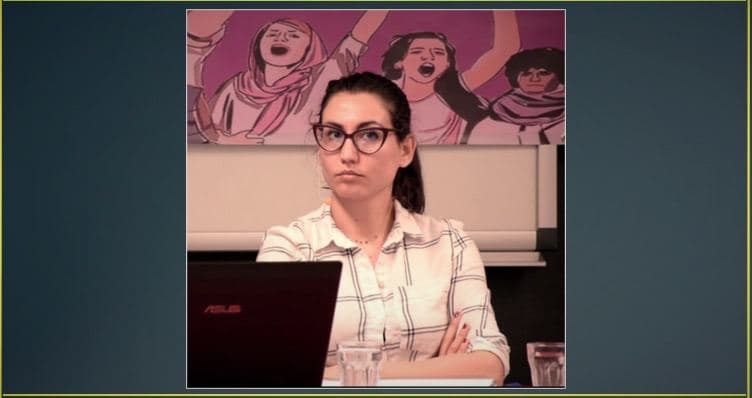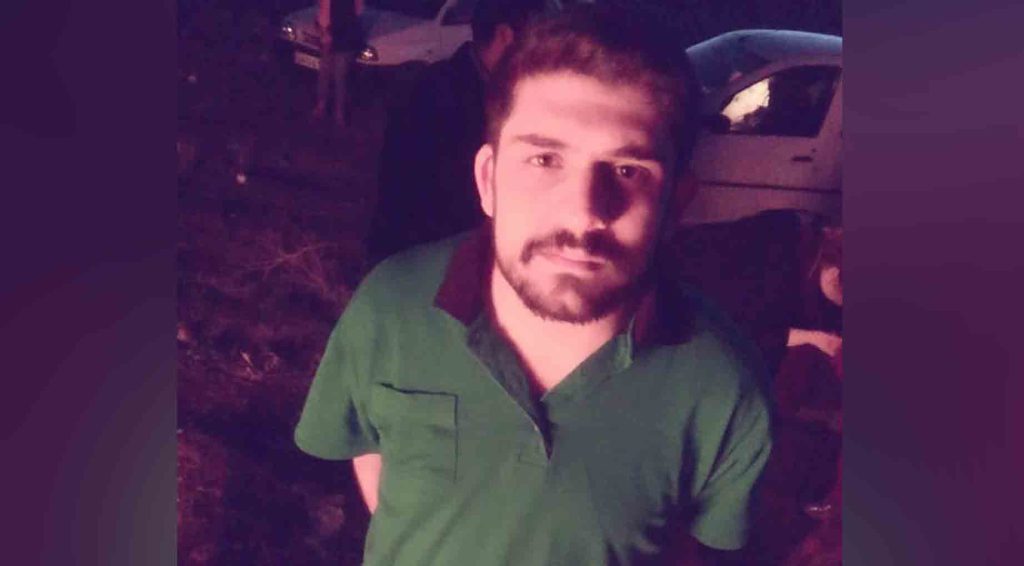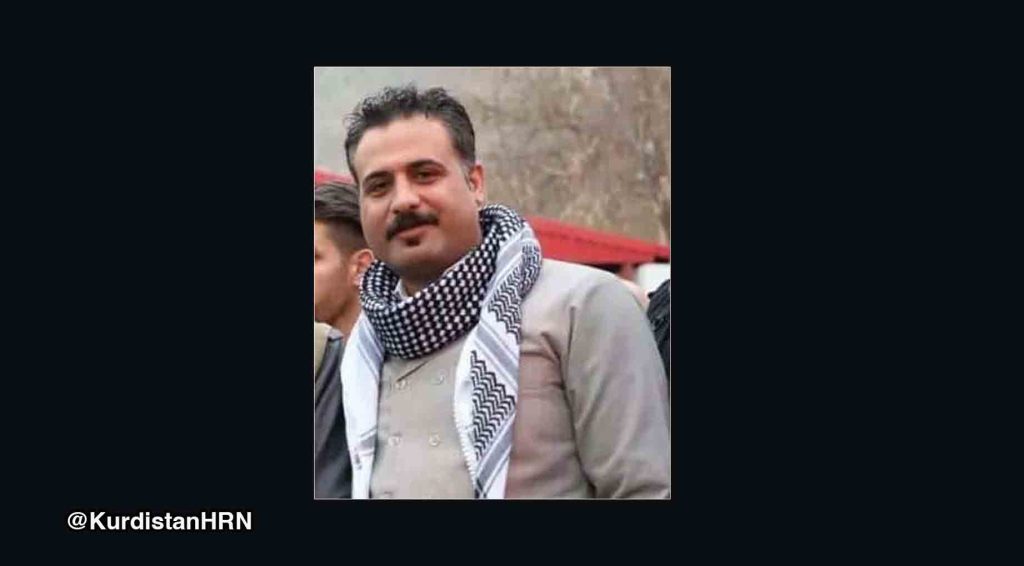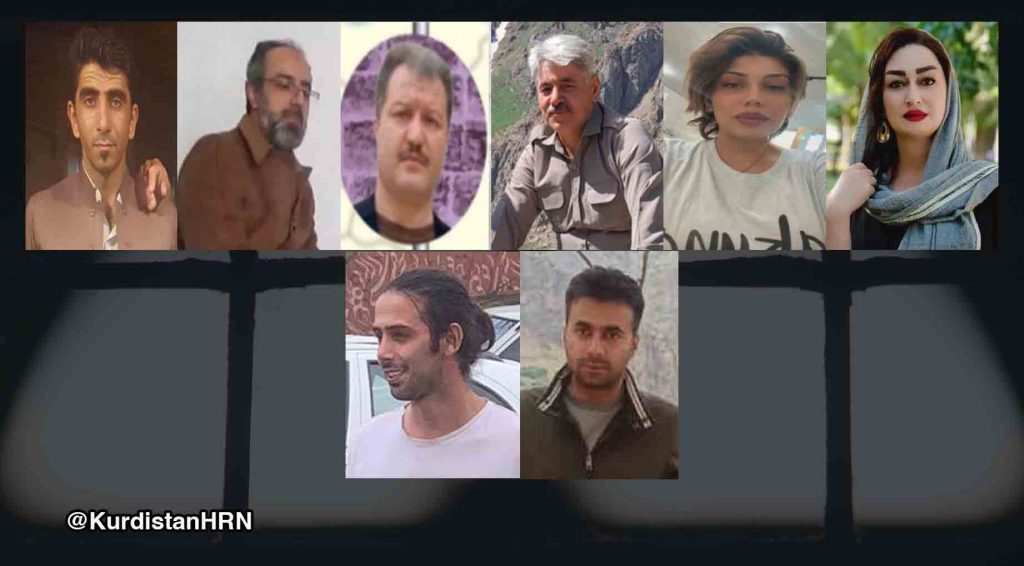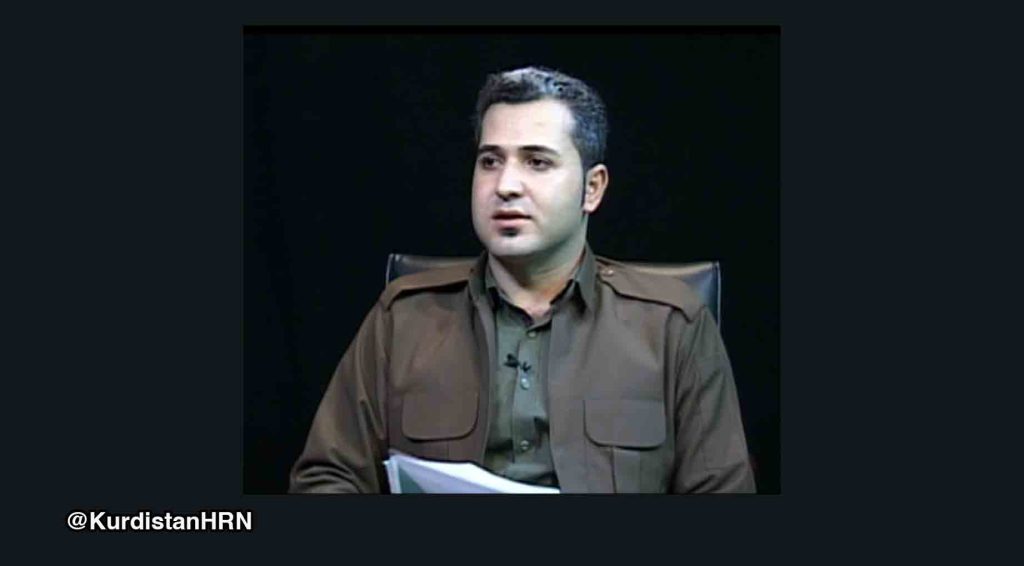Swedish authorities have refused to grant asylum to an Iraqi Kurdish political activist, Hana Nasour, ordering the police on 8 October to deport her to Iraq.
Hana Nasour, who grew up and was an activist in Iran, fears that the Iranian intelligence ministry would “pose a threat on her life” in the Kurdistan Region of Iraq, she told the Kurdistan Human Rights Network (KHRN).
“Security forces of the Kurdistan region also constantly pressured us to either surrender to Iran or leave the region due to my continued activism against the Islamic Republic of Iran”, said the Iraqi Kurdish activist who grew up in Iran.
Hana Nasour was born in 1991 in Iranian Kurdistan to an Iranian Kurdish mother and an Iraqi Kurdish father.
She lived the first 18 years of her life as an Iraqi refugee in Iran’s northwestern Sanandaj, Kurdistan province. Iranian authorities refused to grant her citizenship as her father was a citizen of Iraq.
She was also forced to end her university education in architecture at The Islamic Azad University, Sanandaj Branch, when her family left Iran for political reasons.
Nasour’s activism in Iran and that she was the niece of the executed Kurdish political activist Farhad Vakili focused the pressures of the Ministry of Intelligence in Sanandaj on her and her family.
In 2011, due to the intensity of these pressures, the activist and her family went to the Kurdistan Region of Iraq, where she later received Iraqi citizenship.
However, the activist continued her activism against the Iranian government while residing in Iraqi Kurdistan.
This activism “led to pressures by security forces of the Kurdistan region”, Nasour’s husband Rezgar Rawshani said.
Eventually, in December 2015, she fled to Sweden with her husband and mother, seeking political asylum for their safety.
Swedish authorities have rejected to grant political asylum to the activist and her husband and mother, considering them “extremists” and “threats on Sweden’s national security” for being sympathizers of the Kurdistan Free Life Party (PJAK).
However, they have granted conditional residence permits to the activist’s husband and mother – who are Iranian citizens — but have rejected her own application three times since 2015.
Hana Nasouri’s husband, Rezgar Rawshani, and her mother are also political activists and PJAK sympathizers.
“We are a part of the Swedish society. We work and study here. We have also continued our activism in Sweden for human rights, and we have peacefully opposed executions and violence against women with permission from Swedish authorities. It is unjust that our activism is considered a threat against Swedish national security”, said Hana Nasour.
The activist continues her activism against the Islamic Republic of Iran and has been a critic of the Kurdistan Regional Government for its conduct against Iranian Kurdish activists.
She has participated in various solidarity campaigns in Sweden through her link with the East Kurdistan Free Women’s Society (KJAR).
“It is also against human rights that Swedish authorities have decided to separate me from my husband and mother”, she said.
On 8 October, Swedish authorities ordered the police to deport the activist to the Kurdistan Region of Iraq – an order that could be implemented within two weeks – suggesting there would be no threat to her life in the region.
However, the activist’s husband says the authorities “are ignoring the pressures of security forces and presence of Iranian intelligence ministry in the region”.
The Islamic Republic of Iran “threatens and assassinates” activists politically opposing it, he said, adding that despite holding Iraqi citizenship, “she is considered one of those activists for being a member of an Iranian family politically opposing the Islamic Republic”.
“Unlike what Swedish authorities claim”, the husband continued, “Hana’s life will be in danger also because there is a collaboration in security matters between the Kurdistan Region and the Islamic Republic of Iran”.
He said that Hana Nasour left the Kurdistan region “because the security institutions of the region function as an instrument of the Iranian government to put pressure on Iranian Kurdish activists”.

